You may be worried about how the Coronavirus disease 2019 (COVID-19) may affect you and your baby if you are pregnant or breastfeeding. Additionally, you might have concerns about the safety of COVID-19 vaccines. Below you'll find some important information.
Covid-19 Risk during pregnancy
Women who are pregnant or have recently been pregnant are at greater risk for severe illness from COVID-19. You may have to go to the hospital, get intensive care, or be placed on a ventilator for breathing assistance if you have a severe illness. A pregnant woman with COVID-19 is also more likely to deliver before the 37th week of pregnancy (premature birth) and might be at higher risk for problems such as miscarriage.
Besides, COVID-19 may also be more dangerous for pregnant women who have underlying illnesses, such as diabetes. According to some studies, pregnant women with COVID-19 are more likely to have premature and cesarean deliveries, and their babies are more likely to enter a neonatal unit. You should consult your healthcare provider as soon as possible if you are experiencing any COVID-19 symptoms or if someone close to you was exposed to COVID-19. It's recommended that you get tested for the COVID-19 virus. Before heading to your appointment, make sure you call your healthcare provider ahead of time to tell him or her about your symptoms and possible exposure.
If you have COVID-19 during pregnancy, your treatment will be aimed at relieving symptoms and may include getting plenty of fluids and rest, as well as using medication to reduce fever, relieve pain or lessen coughing. You may have to be hospitalized if you are very ill.
Recommendations for Labor and Delivery
If you are in good health as you approach the end of your pregnancy, some aspects of labor and delivery might go according to plan. However, be prepared to be flexible.
The hospital may screen both you and your support person for COVID-19 symptoms before you arrive at the hospital if you are scheduled for delivery by induction or C-section. A second screening might take place before you enter labor and delivery. If you have symptoms or the virus that causes COVID-19, your induction or C-section might be rescheduled.
Some facilities might restrict the number of people you can have in your room during labor and delivery in order to protect your health and that of your baby. Also, you and your support person may be screened daily for symptoms during your hospitalization.
It is recommended that you wear a cloth face mask during hospitalization after childbirth if you have COVID-19 or are awaiting test results due to symptoms. When you are in the hospital, you can keep your newborn's crib next to your bed, but you should also maintain a reasonable distance from your baby. Taking these steps will lower the risk of infecting a newborn with COVID-19.
In some cases, your newborn may need to be separated from you temporarily if you become severely ill with COVID-19.
Postpartum Guidance
An ongoing process of postpartum care is advised after childbirth. Consult your health care provider about the possibility of virtual visits following delivery, and whether an office visit is necessary.
You might experience greater anxiety during this stressful time about the health of your family as well as your own. Make sure you maintain a healthy mentality. Take precautions to reduce your risk of infection with COVID-19 while reaching out to your family and friends for support.
Mood swings, loss of appetite, fatigue, and lack of joy in life may be symptoms of postpartum depression shortly after delivery. If you suspect you might be depressed, consult your healthcare provider, especially if your symptoms do not go away on their own, you have difficulty caring for your baby or completing everyday tasks, or you have thoughts of harming yourself or your baby.
Breastfeeding Considerations
According to the research, the COVID-19 virus is not likely to spread to babies through breast milk. It is more concerning whether the virus can be transmitted to the baby through respiratory droplets while breastfeeding. Take precautions when you have COVID-19 to prevent spreading the disease to your baby. Make sure that you wash your hands before breastfeeding and wear a face mask to prevent contamination.
COVID-19 Vaccines During Pregnancy and Breastfeeding
COVID-19 vaccines are recommended for both pregnant and breastfeeding women. Getting vaccines can protect you from severe illnesses that are caused by COVID-19. Women can also build antibodies that might protect their babies during pregnancy by getting vaccinated.
Despite more research being needed, it appears that getting an mRNA COVID-19 vaccine during pregnancy poses no serious risks for pregnant women or their babies. These findings are based on data collected by the CDC's Coronavirus vaccine safety monitoring system. Moreover, mRNA COVID-19 vaccines don't cause any genetic or DNA changes.
Getting a COVID-19 vaccine is also recommended if you are trying to conceive or might become pregnant in the future. There is currently no evidence that any COVID-19 vaccine causes fertility problems. Discuss the risks and benefits with your healthcare provider if you have any concerns.
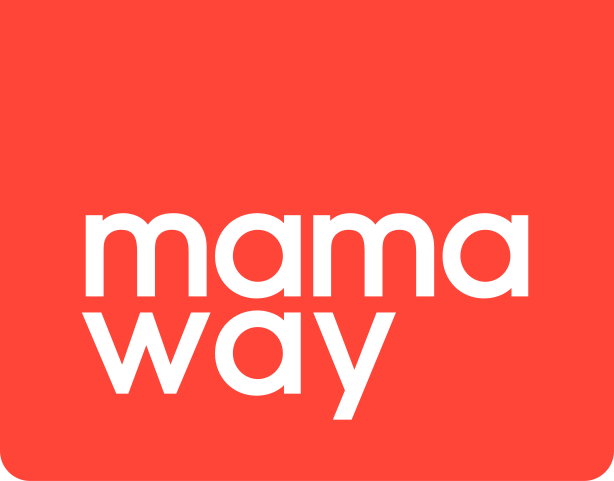

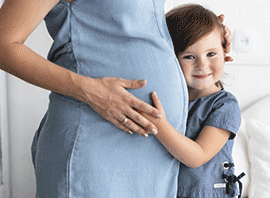
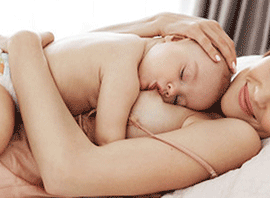
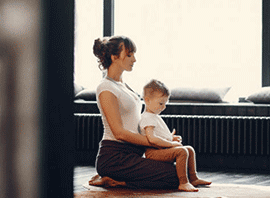
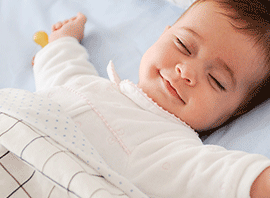






Validate your login
Sign In
Create New Account